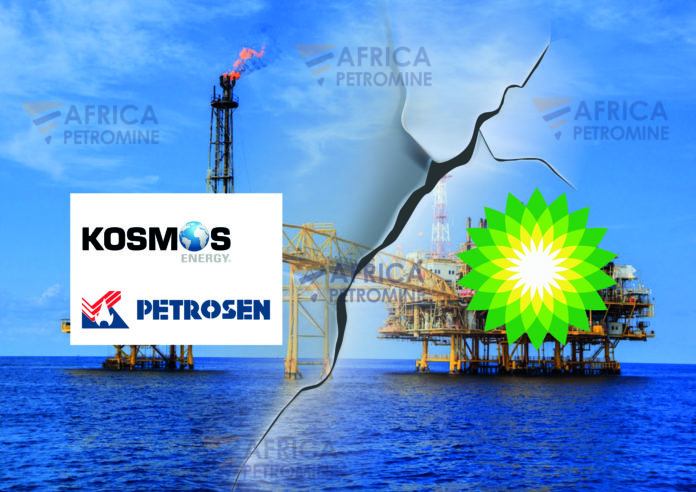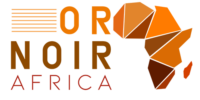GAS
Senegal-Gas: Why Yakaar-Teranga is in troubled waters (By Abdou Diouf Junior)

Bp has left Yakaar-Teranga. That's what everyone knows at the moment. What the general public doesn't know, and deserves to know, is WHY. There's also a big equation to solve: who will be the "new participant" in the joint venture? The current hypothesis is the participation of another partner who would be kind enough to take a 33% stake. We are told that Petrosen would then "become" the majority shareholder. Are we sure we know what this means? Let's remember that it's just a projection. Here's why we need to stop getting carried away by Yakaar-Teranga.
If there's one oil project that all the people must fight to defend, it's Yakaar-Teranga. Unfortunately, just as our hopes of finally seeing the Final Investment Decision signed are growing, Bp has chosen to abandon its Joint-Venture partners. In fact, the British multinational lacked motivation and expressed several reservations about the project, notably its profitability in relation to the production scheme agreed with the joint venture partners (Petrosen and Kosmos).
BP has been putting pressure on the Senegalese government to obtain tax exemption so that it can develop the Yakaar-Teranga project. The company argued that the project, as conceived by the government, could not be operated profitably. And (fortunately) Senegal refused this "blackmail". In fact, the British multinational refused to lend money to Petrosen for the project, mainly because its debt had become exorbitant. Even so, BCEAO interest rates are rising and could reach 50% in the years to come.
It's a risk the GTA operator has no intention of taking, especially with oil companies under intense pressure to reduce their carbon footprint and funding for fossil fuel projects dwindling. In short, we can only imagine what tomorrow will bring. Bp has therefore decided to leave the gas field, even though it is considered to be a world-class deposit (20 Tcf, or around 560 billion cubic meters of gas, has been announced). We'll come back to the other reasons for its departure.
PETROSEN majority shareholder, why we shouldn't get carried away
The good news is that Senegal has decided to take its courage in both hands. This time, our country has taken the right decision to open up the Joint-Venture (JV) to another participant. The big mistake of leaving "total control" of the JV to the operator, made in the Sangomar project with Woodside, must under no circumstances be repeated at Yakaar-Teranga.
So it's good to see that there is (or will be) a major (that's the best profile) who will be able to go as high as 33%. Petrosen will remain the majority shareholder, we are told, with 34%, against 33% for Kosmos. Another piece of good news, in theory, but in practice, it seems to us to be a disproportionate ambition. Petrosen cannot remain the majority shareholder at this stage of the project. Nor can it be left alone with Kosmos in such a strategic project.
We can only hope that this famous "new participant or partner" arrives as soon as possible. Its arrival was announced with great subtlety. We've been given the impression that it's a nice big company just waiting for BP to set sail and disembark without delay. But no, it's not a foregone conclusion.
Is this just a publicity stunt? Is it just a ruse to appease skeptics and attract companies? In any case, I don't think PETROSEN is actually taking a 34% stake in a project estimated, at the time, at $5 billion. That's 1.5 billion dollars and an investment of around 900 billion CFA francs over 3 years, or 300 billion CFA francs a year. Bear in mind that the IMF has to give its approval, and there's a good chance that the international financial institution will disapprove of this approach.
The world's financial watchdog will control budget inflation. Senegal has a budget deficit of 1,000 billion, which it borrowed from the IMF. In simple terms, your creditor is not going to grant you a new debt without being sure that you will be able to pay the one already contracted. Kosmos could therefore remain operator even if the American company does not have a majority stake, but once again, this will be decided by the joint venture agreements.
It is true that these costs were announced in 2020, and there is a good chance that they will be revised upwards, as is customary in most large-scale extractive projects. Petrosen will therefore not be able to operate. If it does, it will have to bear the costs of production for a certain period, defined in the joint venture agreements (which set the duration of operator status). Société des Pétroles du Sénégal has neither the financial nor the human resources, let alone the technical capacity.
However, the press release states, in black and white, that Petrosen becomes the majority shareholder with 34%, and that Kosmos and the hoped-for "new partner" (without specifying who, when or how) each hold 33%. Is this just an announcement? Let's hope not. But who exactly is "the new partner"? It doesn't have a name (yet). We're looking for it and projecting. And if we find him, we must pray that he accepts the conditions rejected by Bp.
The best and worst-case scenarios for Yakaar-Teranga
The Yakaar-Teranga gas project is one of Senegal's greatest hopes in the hydrocarbon sector. This hope rests on a well-established energy policy which, when implemented, could launch the country definitively on the road to emergence. There is, however, one scenario that must be avoided at all costs. Kosmos must not, under any circumstances, be a majority shareholder. Nor should it be alone in this project with Petrosen.
Indeed, in JVs, the operator's mandate is rotating (it can last from 5 to 10 years or even longer) and its duration depends on the JV agreements. These agreements are not published. The general public is therefore unaware of their content. However, it is these agreements that define who makes the decisions (we know that Senegal has the right of pre-emption, but we don't know any more) and the process for validating these decisions.
As PETROSEN does not have the resources to match its ambitions, Kosmos is likely to remain operator for a period that will depend on Petrosen's ability to take over in the future. But, once again, it's the JV agreements that determine the course of action to be taken. We mustn't make the same mistake as in Sangomar, where Woodside is alone with the national company, pulling all the strings. Kosmos holds all the cards at the moment (if we don't have another participant) and this reduces Senegal's room for manoeuvre and exposes it.
It is therefore imperative that Kosmos' shares remain around 40% and that it remains operator. Petrosen should end up with 25% versus 35% for the much-hoped-for major. Senegal must assume its responsibilities. It must not allow the American company to monopolize the 75% share and work solely with Petrosen on this project.
The other hypothesis would be to bring two other companies into the joint venture, including a consortium of private Senegalese investors. We would then have 4 shareholders, as is the case for Ghana's Jubilee Field project, where TLW (Op) holds 38.98%, Kosmos 38.61%, Ghana National Petroleum Corporation 19.69% and Petroleum Oil and Gas Corporation (the South African national company) 2.72%. This would suit Senegal, which could keep its 25% and share the 40 or 45% with other companies in the hydrocarbons sector, while Kosmos remains at around 30% and retains its operator status. We'll see later why this option is important.
Already present in Senegal, with its weight and expertise, Total could be approached to join the Joint-Venture, if the partners want to remain 3 in the JV. It has to be said that the French major is one of the companies, if not the only one, to have perfect mastery of the Senegalese sedimentary basin. Its refusal to join the JV would be a way of calling into question the estimated reserves of Cayar Offshore Profond (COP) and would explain, in part, one of the reasons for BP's withdrawal. If BP were to agree to join Kosmos and Petrosen, it could thwart the decisions of its American counterpart and, in a way, protect the interests of the Senegalese company.
Senegal can even call on Shell and other major companies capable of mobilizing funds and becoming operators when the mandate turns according to the JV agreements. The inclusion of a major in the JV would guarantee and secure the project. Indeed, as things stand at present, if Kosmos decides not to invest and withdraw from the project after a few years, Petrosen will be on its own in trouble off Cayar. The Senegalese company has neither the financial capacity, nor the confidence of the banks, let alone the human and technical expertise to operate a gas project.
In Yakaar-Teranga, it's not daylight yet. It would be surprising (though possible) if another oil company were to commit to this project before we are sure that the country will be stable again in the wake of next February's presidential election. The current uncertainties linked to the political crisis and international crises (Russia-Ukraine and Hamas-Israel) with their ramifications and impact on world geopolitics, do not argue in favor of Yakaar-Teranga.
Abdou Diouf Junior, Africa Pétromine
-

 ANALYSIS1 an ago
ANALYSIS1 an agoThe 3 African countries richest in natural resources
-

 NEWS11 month ago
NEWS11 month agoTop 10 des pays africains producteur de l’or : Mali 2-eme, Burkina Faso 3-eme
-

 FOCUS ONA1 an ago
FOCUS ONA1 an agoThe 10 largest oil refineries in Africa
-

 FOCUS ONA11 month ago
FOCUS ONA11 month agoTop 10 oil producers in Africa in 2023
-

 NEWS2 ans ago
NEWS2 ans agoRanking of oil producers: Here are the Top 10 African countries.
-

 NEWS8 month ago
NEWS8 month agoAfrica's 10 largest natural gas production fields.
-

 NEWS2 ans ago
NEWS2 ans agoTop 20 oil producing countries in 2022
-

 NEWS10 month ago
NEWS10 month agoIvory Coast: Eni to deploy a cylindrical FPSO and a converted FSO on the Baleine oil field












